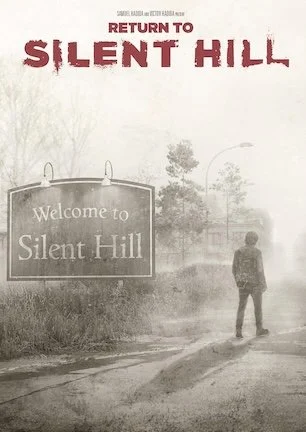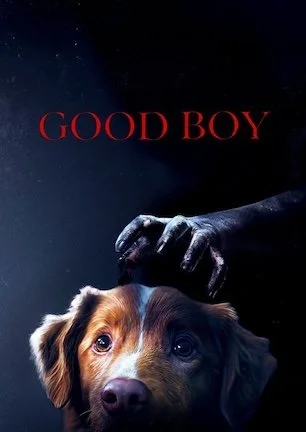Studio: IFC Films/Shudder
Director: Andrew Semans
Writer: Andrew Semans
Producer: Tim Headington, Lia Buman, Tory Lenosky, Alex Scharfman, Drew Houpt, Lars Knudsen
Stars: Rebecca Hall, Grace Kaufman, Michael Esper, Tim Roth
Review Score:
Summary:
A single mother spirals into mania as she comes to believe an abusive ex has resurfaced to inflict more psychological trauma.
Review:
Multiple movies have gone by the title “Resurrection.” You’ve landed in the right place if you’re looking for the 2022 psychological thriller starring Rebecca Hall and Tim Roth. Perhaps you’ve heard how the film features what some would popularly call a “WTF?” ending, and curiosity compels you to know more. What you may not have heard, but should know depending on how long your patience allows suspense to slow roast, is that “Resurrection” grinds through mundane moments of little narrative reward before getting to the “good” stuff. When it does get to that good stuff, however, several scenes border on being great.
“Resurrection” opens with an introduction to Margaret (Rebecca Hall), an above-average single mother raising a daughter, Abbie, who is two weeks away from turning eighteen. Margaret works in an office at a biotech firm, mentoring young interns and presenting Powerpoint decks to other execs dressed in smart business wear. We later learn that a past trauma ruined her capacity to maintain trustworthy romances. Abbie came about from hooking up with random barflies Margaret hoped could give her a baby. Now she simply satisfies physical needs by casually hooking up with a married coworker whenever the whim strikes her.
After additional pieces of Margaret’s personality are presented, we retroactively receive more valuable insight into her character’s construction than what this dull day-in-the-life drama initially implies. But there are also redundancies included that drag down the pace, resulting in a distinct “get on with it” sense during early events. Watching Margaret at work, walking to the office, jogging, discussing cereal’s nutritional value with her daughter, jogging again, and attending a conference aren’t exactly setups that consistently energize engagement.
“Resurrection” shifts into its next gear when David (Tim Roth) enters the equation. Since the story doesn’t clue the audience in to David’s full history or macabre motivations until mid-movie, it would spoil “Resurrection’s” juiciest secret to reveal too much too soon. Suffice to say, David inflicted the trauma that shattered Margaret when she was only 18. Back then, he was a mature older man who wooed and then wormed his way into her life, ultimately employing psychological manipulation and torturous affectations to turn Margaret into a subservient partner controlled by his wicked will.
Margaret hasn’t seen David since she escaped to America 22 years ago. Now it seems he finally found her, as David unexpectedly resurfaces all over the city, apparently intent on playing his cruelest mind game yet. Panicking over her daughter’s safety, yet still susceptible to David’s deviousness, Margaret becomes caught in a new storm of fear and paranoia while everyone around her questions why she appears to be unraveling, and why she refuses to divulge the danger.
Regular readers who’ve seen me cover such concepts before know I have a pet peeve when it comes to “Is it real or is it all in his/her head?” plotlines. You probably have it too. Chiefly, by nature of falling into the genre of horror, thriller, or suspense, the protagonist almost always turns out to be telling the truth about a threat no one else notices, rendering the runaround of naysayers and disbelievers a big waste of time.
“Resurrection” has some of those standard scenes. There’s a cop who tells Margaret he can’t do anything about David’s supposed stalking unless there’s evidence of an actual crime. Margaret’s workplace fling and deeply doubting daughter both implore Margaret to seek psychiatric help too.
But writer/director Andrew Semans doesn’t make the movie about those moments. Yes, “Resurrection” is a gripping examination of a sociopath’s psychological stranglehold on a woman who possesses a dormant power to assert her agency, although extreme emotional sabotage prevents her from doing so. But no, it’s not about flogging the flattened horse of how no one listens to her or repeatedly ignores pleas for help. Other than the cop, and using a woman at work to do an exposition dump, Margaret never truly tries to tell anyone what she believes is going on. Semans uses those scenes to answer common questions like, why wouldn’t she go to the police, to show that basic bases are covered. Then “Resurrection” quickly gets back to ratcheting tension where it matters most: in the deadly dynamic developing between Margaret and David, or more accurately, between Hall and Roth.
At a minimum, “Resurrection” can be called bizarre. Those who are more shocked by the turns taken might raise that all the way up to “bonkers.” But it’s Hall and Roth who use every ounce of their magnetic talent to achieve the improbable feat of making the movie’s madness believable.
Margaret marks another perfect fit for Rebecca Hall, who seems incapable of choosing bad roles anyway. Hall automatically comes equipped with a seasoned stature and intangible air of cautious wisdom so that what her daughter, or any objective observer, views as unhinged behavior, reads as warranted wariness to an audience inherently won over by Hall’s confident charisma. She makes Margaret too intuitive, too good at reading situations to be anything less than a savvy person unfairly weakened by an unimaginable situation.
Perhaps pigeonholed for his effortless ability to convey conniving contempt with steely intensity some might deem sinisterly seductive, Tim Roth gets a great role too. There are very few secondary players in “Resurrection,” although all of them are equally well cast, from the desperate concern of Grace Kaufman as Margaret’s smart, yet not annoyingly snarky teen daughter, to Angela Wong Carbone as a sympathetic intern fighting to figure out her own abusive relationship. Various emotions explode everywhere as everyone puts on an acting clinic that powers “Resurrection” almost purely through performances.
“Resurrection” eventually becomes a riveting 89-minute thriller hindered by the unattractive bloat of a 104-minute runtime. Using the editing room as a gym to burn off the first act’s fat would elevate the film’s status from “your mileage may vary” to “you may not want to miss this.” As is often the case when Rebecca Hall and Tim Roth are involved though, quality characterizations keep “Resurrection” captivating. The first half hour or so has its work cut out in winning over an impatient attention span. But provided you can push past any exhaustion, you’ll feel a rush of exhilaration when you hit the dizzying sprint toward the finish line.
Review Score: 70






While the 110-minute runtime could use a trim to maintain more energy, “Redux Redux” is an easy recommend for anyone who enjoys low-key sci-fi.